AASB 15 – What’s changing?
The International Financial Reporting Standards (IFRSs) 15, adopted in Australia as AASB 15, legislation commences from 1 January 2018. From this date it is mandatory for impacted businesses to apply certain principles in their financial reports/ statements about the nature, amount, timing and uncertainty of revenue and cash flows arising from a contract with a customer. Australia Securities and Investments Commission (ASIC) has cautioned businesses that AASB 15 is one of the most significant changes to financial reporting in the country since IFRS adoption in 2005.

Five-step model for revenue recognition and measurement
AASB 15 requires a five step model to be applied to determine when a business can recognise and report on revenue.
- Step 1 – Identify the contract
- Step 2 – Identify separate performance obligations
- Step 3 – Determine transaction price
- Step 4 – Allocate transaction price to obligation
- Step 5 – Recognise revenue when/as obligation satisfied
Importantly, revenue must be recognised when (or as) a customer gains control of goods or services for the agreed amount. In some cases, depending on if the required criteria is met, revenue may be recognised either over time, in a manner that reflects the company’s performance, or when control of the goods or services is transferred to the customer.
What is the scope of the legislation?
AASB 15 applies to all contracts with customers, except the following:
- lease contracts within the scope of IAS 17 Leases;
- insurance contracts within the scope of IFRS 4 Insurance Contracts;
- financial instruments and other contractual rights or obligations within the scope of IFRS 9 Financial Instruments, IFRS 10 Consolidated Financial Statements, IFRS 11 Joint Arrangements, IAS 27 Separate Financial Statements and IAS 28 Investments in Associates and Joint Ventures; and
- non-monetary exchanges between entities in the same line of business to facilitate sales to customers or potential customers. For example, this Standard would not apply to a contract between two oil companies that agree to an exchange of oil to fulfill demand from their customers in different specified locations on a timely basis.

How could the AASB 15 Legislation impact your business?
Fundamentally the new standards provide further clarification about the principles to be applied when determining how revenue should be recognised. – It is the obligation of the management and directors of your individual business to determine how revenue will be recognised. This will include a review of the underlying circumstances within your business that surround revenue, such as contracts and business trading terms. As a result of your review, you need to understand if your current processes comply with the requirements of AASB 15. From business to business, even within the same industry, these circumstances may change and therefore impact how revenue is recognised. External sources (such as your accountants or auditors) may provide further guidance. – In many instances, this review may have already been completed by your management, directors and auditors – and compliance with the AASB 15 requirements may have been achieved. As a result, there may be no change required to your current revenue recognition policies. In other cases, it may be determined that changes are required.
How will Pronto Software help?
Pronto Xi already provides the ability to report revenue according to the particular circumstances of the business. – To support you further, we can provide additional assistance with meeting your revenue reporting obligations under the new standards. Pronto Xi’s underlying architecture can allow for bespoke solutions to cater for individual requirements that fall outside the core offering. Once you have determined how the revenue is to be accounted for, through a collaborative process, Pronto can establish whether our standard software will meet your needs – or if a custom solution would enable you to manage the legislated requirements more efficiently.
Call 02 9878 7111 for more information.

